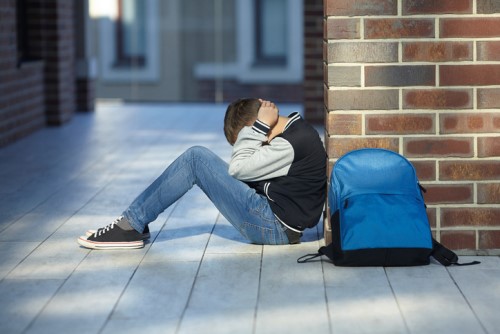
According to reports, approximately one in four Year 4 to Year 9 Australian students (27%) reported being bullied every few weeks or more often.
This issue has been made more complicated by cyberbullying, which has allowed the offenders to hide behind anonymity, increasing feelings of anxiety and helplessness among their victims.
For schools, the challenges are obvious, and a range of initiatives have been launched over the years to make playgrounds – and homes – as safe as possible for children across Australia.
Today marks the National Day of Action against Bullying and Violence, an initiative which gives schools the chance to take action and empower young people to be part of the solution when addressing bullying in their school community.
To address this, the peak body for parents with children in Catholic schools says it is critical that parents actively engage in and support schools’ anti-bullying strategies.
Council of Catholic School Parents (CCSP) executive director, Peter Grace, says that bullying is learned behaviour, which makes the type of behaviour that parents model for their children incredibly important.
“Bullying is an area of great concern for many parents, and understandably so. Any parent of a child that has been bullied knows how distressing it is, not only for the child, but for the whole family,” Grace said.
“To help prevent bullying, Catholic schools have their own bullying prevention strategies in place and it is critical that parents actively engage in and support these strategies.”
Grace said schools also have policies and processes in place to manage reported bullying behaviour so that it is addressed as early as possible.
“At home, children are watching and learning from the adults in their lives, so we must be conscious of the examples we set for them. Do our thoughts, words and actions build up or tear down the dignity of others?” Grace said.
The 2019 National Day of Action against Bullying and Violence theme is Bullying. No Way! Take action every day. Grace said that by setting good examples and reinforcing positive behaviour on a daily basis, parents and carers are helping to prevent bullying among children and young people.
Interventions to address bullying
Professor Phillip Slee of Flinders University is a leading expert on bullying, and a member of the Australian Universities Anti-Bullying Research Alliance.
He says bullying is a public health issue impacting on everyone and detracting from the social capital of the community.
“Bullying prevention is a whole of community matter – not just a matter for schools,” Professor Slee said.
“Some groups are particularly vulnerable, such as children on the autistic spectrum, those who are LGBTQI, and those with special educational needs and disabilities.”
Professor Slee added that bullying has an economic cost to the community, and that effective interventions need to be promoted.
However, he said it is crucial that interventions proceed from a strong evidence base; while some work, others can do more harm than good.
“As such, a strong evidence base for interventions must be established before they are widely promoted,” he said.


